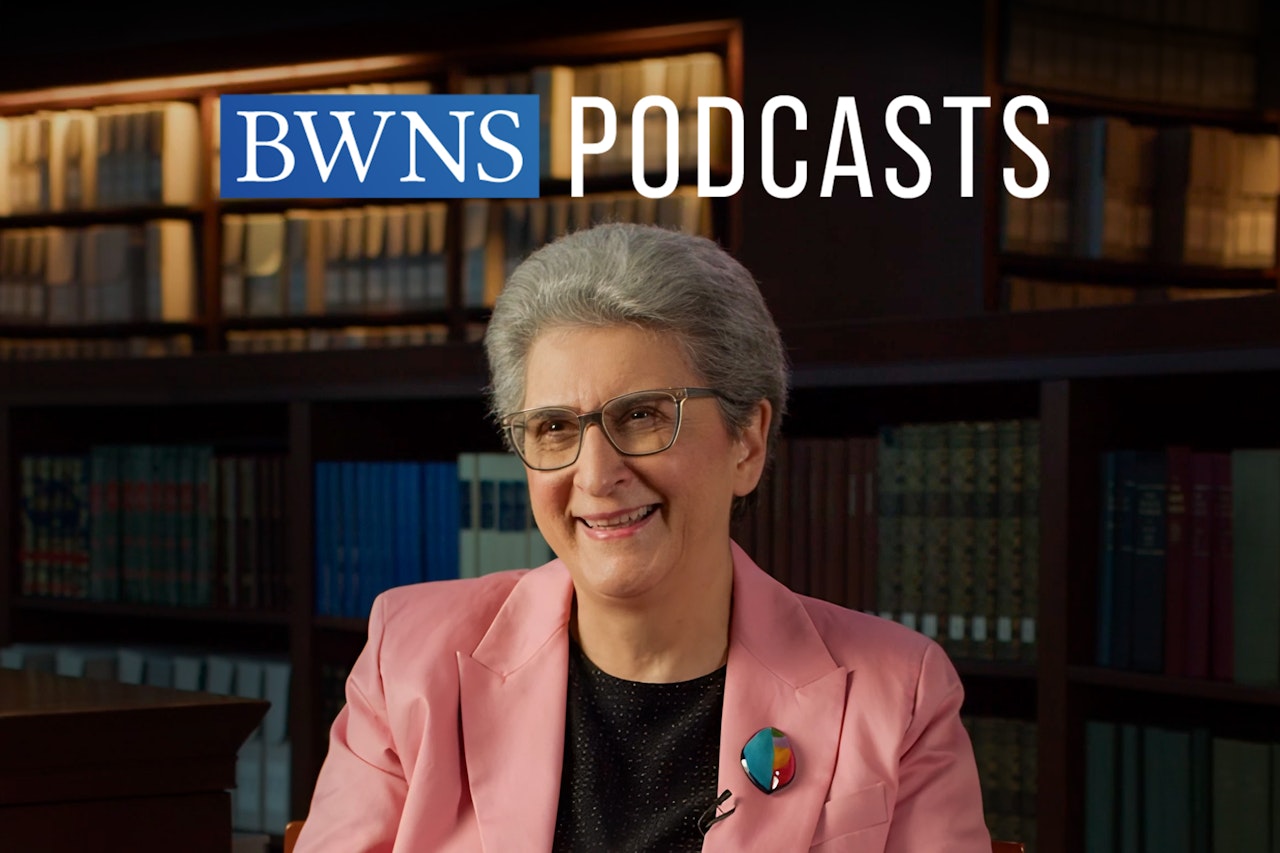
Insightsfrom the Field
Bahá’í Chair examines conditions essential for lasting peace
The Bahá’í Chair for World Peace at the University of Maryland examines how spiritual and moral principles can help overcome barriers to creating a peaceful world.

The Bahá’í Chair for World Peace at the University of Maryland examines how spiritual and moral principles can help overcome barriers to creating a peaceful world.
COLLEGE PARK, Maryland, United States — In the latest podcast episode of the Bahá’í World News Service, Hoda Mahmoudi—holder of the Bahá’í Chair for World Peace at the University of Maryland—discusses the Chair’s distinctive approach to promoting dialogue and understanding and its research with programs on peacebuilding and development.
The Bahá’í Chair, established in 1993, emerged from a collaboration between scholars seeking to explore new perspectives on achieving world peace. Dr. Mahmoudi explains that the Chair’s approach views peace not merely as the absence of war, but as the presence of conditions that allow human potential to flourish.
“Peace is much more than the elimination of war,” says Dr. Mahmoudi. “What we are interested in is how to remove the barriers to peace.” She explains that this requires examining deeply-rooted social issues that prevent the emergence of a truly peaceful society.
The Chair focuses on five themes that it sees as essential to removing barriers to peace: structural racism and the root causes of prejudice; human nature; the empowerment of women as essential to peace; global governance and leadership; and environmental degradation.
“Our belief is that if you have prejudice in any given society, you will not have a peaceful society,” Dr. Mahmoudi explains. “We see all forms of prejudice—racial, gender, religious, economic, political... What are the barriers? Why can’t we eliminate these prejudices?”
She adds: “To define peace from the Chair’s perspective would be to say that we want to look at the entire planet... every human being… and all the nations on this planet are a part of our vision for peace.”
Dr. Mahmoudi spoke about the Chair’s educational work and how it creates environments where students engage deeply with these challenging topics. In a seminar called “The Problem of Prejudice,” students explore how their own experiences connect to broader societal patterns.
“We want them to learn from each other’s experiences,” she explains. “To create a culture of peace means that every individual has to internalize moral and spiritual teachings about how we eliminate racism, how we eliminate sexism.
“It may be hard, the issues may be difficult, but we can have an honest, mature conversation about all these issues without further fragmentation.”
The Chair’s distinctive contribution lies in its integration of spiritual and moral principles with academic research. “The Bahá’í Chair is slightly different than many others,” Dr. Mahmoudi notes.
“We always want a moral framework to be at the forefront of everything we discuss. But also, an integrative approach—you want the individuals involved, you want the institutions involved, and you want… the nations… involved.”
Through its research, publications, and educational programs, the Chair continues to foster dialogue and understanding about the prerequisites for lasting peace, contributing to a growing body of knowledge about how humanity might move toward a more peaceful future.